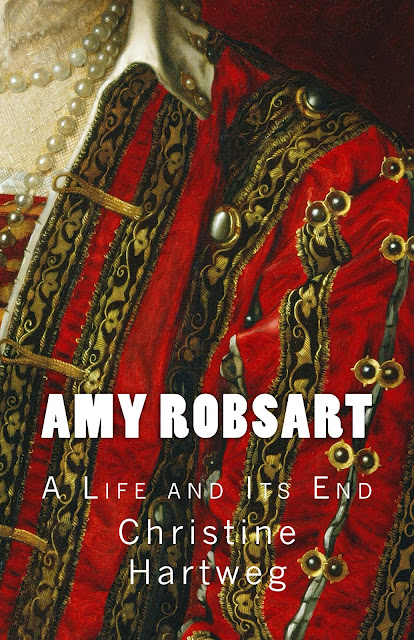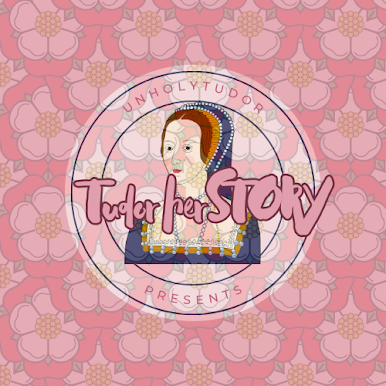Penelope Devereux with Tony Riches
Penelope Devereux with Tony Riches
Firstly, could you tell us about yourself first?
Thanks, Jessica – I write historical fiction full-time in Pembrokeshire, Wales. Best known for my Tudor Trilogy, I’ve continued to follow the Tudor line to the end of the Elizabethan era. I also have a popular podcast series, Stories of the Tudors.
Where did you first discover Penelope Devereux?
In my Elizabethan Series, I wrote the second book, titled “Essex - Tudor Rebel,” which focuses on Robert Devereux, Earl of Essex and his sister Penelope. Through my research, I discovered that Penelope was a captivating and powerful woman.
What made you want to write a book on Penelope?
I planned the Elizabethan Series as two interconnected trilogies. The first three books explore the lives of three Elizabethan men. All of Queen Elizabeth’s favourites, they each see her very differently. Drake is in awe of her, Essex teases her and Raleigh is the captain of her guard.
The next three books in the series are about three of Queen Elizabeth’s ladies, who also see quite different facets of her complex personality. Penelope was an obvious choice as the first of these. Her great-grandmother was Queen Elizabeth’s aunt, Mary Boleyn. Her father was Sir Walter Devereux, 1st Earl of Essex, and her mother was Lady Lettice Knollys, banished from court for her secret marriage to the queen’s great favourite, Sir Robert Dudley. Penelope lived life on her own terms, and most people have never heard of her, so I thought her time has come.
Did you find it easy researching Penelope’s life?
I spent two years researching her brother Robert’s life, so I was familiar with Penelope’s world, but one of the challenges in researching Elizabethan ladies is the limited number of primary sources such as letters. When I researched Robert Devereux for my book Essex – Tudor Rebel, I had Walter Bourchier Devereux’s ‘Lives and Letters of the Devereux, Earls of Essex’ - a two-volume collection of his letters and papers, complete with detailed analysis and context.
In Penelope’s case, it took a bit of detective work to discover only twenty-seven letters in English, six in French and seven letters in Spanish. Interestingly, many use code words or are deliberately obscure, although analysis of them reveals an invaluable sense of Penelope’s ‘voice’, and how she related to others.
Another surprise was the inconsistent records of Penelope’s many children. Some biographers have them in the wrong order, while others ignore some entirely. The situation is not helped by the question of who their fathers were, and premature or stillbirths with no baptism. My solution was to create my own list from the best information I could find.
Do you believe she was in any way involved in her brother's plots?
I believe Penelope could have prevented his ‘rebellion’ if she had wished to, but like a lot of Elizabethan’s was tired of the men like Sir Robert Cecil who ran the country in the name of the queen, so did nothing to stop her brother until it was too late.
Did Penelope face a lot of backlash for having a relatively public affair whilst she was still married?
One of the surprising things about the Elizabethans is that divorce was only possible with an act of parliament. This meant she had to make a deal with her husband whereby she retained her title of baroness, without causing him public shame. The gossipers of the court must have enjoyed the intrigue, but there seems to have been little sanction for openly living with her lover – and having his children, although they were given her husband’s surname.
Did you enjoy researching her life?
Yes, all I knew about her was from her brother’s point of view, so it was fascinating to search for the truth behind Penelope’s story. I believe my book is the most complete account of her life, as her biographers take less interest in the events of her childhood or what happened after the death of Queen Elizabeth.
There are many big names at court in Penelope’s life, so do you think you could name a few and if they had any influence on her?
One of the most significant was Sir Robert Dudley, Earl of Leicester, who angered the queen by marrying Penelope’s mother in secret. This meant he became Penelope’s stepfather, and he wasted no time working out how he could profit from her marriage.
Penelope also had an ongoing feud with Robert Cecil, who had taken over from Sir Francis Walsingham as the queen’s spymaster. Cecil made it his business to discover Penelope’s secrets, including her risky correspondence with King James of Scotland about the succession.
Frances Sidney became Penelope’s sister-in-law, marrying Robert Devereux after the death of Philip Sidney, and moved into Essex House. They had a great deal in common, as both were better educated than most men and fluent in several languages. They also had daughters of a similar age and had suffered miscarriages and lost their fathers.
Although there would have been some tension about Philip, they shared a concern about Robert’s continued impertinence with the queen and would have confided in each other, as neither had many female friends they could trust.
In your book you insinuate she was in love with Phillip Sidney, is there any truth to this?
Philip Sidney’s sonnet sequence ‘Astrophel and Stella’ makes it quite obvious that Penelope is his Stella, and that they were lovers. Sadly for Philip, his prospects of a significant inheritance from his uncle, Robert Dudley, vanished when little Robert Dudley was born. Philip felt he could not ask Penelope to marry him until he’s made his fortune – and the rest is history!
Do you have any ideas why Robert Dudley married her to a Puritan? When she was so alike her mother?
The marriage was a business transaction, and Penelope was the last to learn the identity of her husband, by which time Dudley had made sure it was too late, as he’d secured the queen’s permission for the marriage.
Do we know if the death of Penelope’s father had a big impact on her?
Penelope was thirteen when her father died in Ireland, and old enough to understand he was most likely poisoned by one of his Irish servants. Her mother blamed the queen for sending him to Ireland in the first place and making him spend the family fortune to pay his men. This would have always been at the back of Penelope’s mind in her dealings with the queen, and a factor in her wish to see King James on the throne of England.
Why do you think she has faded into obscurity and is relatively unknown?
One of the failings of the way Elizabethan history is taught is the focus on Queen Elizabeth and the men around her, with little attention on the women, who fade into the background. This is the reason I wanted to write three books about exceptional Elizabethan women and shine a light on their lives.
How did Penelope curry favour with the new king?
Penelope knew King James needed to know who he could trust – and who to watch out for and put herself forward for this in secret letters. In fact, it was the potential new queen, Anne of Denmark, who became the key to Penelope’s acceptance, as although she brought her Scottish ladies in waiting to England, she also needed someone she could trust to guide her.
Do we know Penelope’s relationship with her mother, and if so, was it a close bond?
Penelope’s mother, Lettice Knollys, spent little time with her children, preferring to live an active social life with her wide circle of influential friends, such as Robert Dudley.
It was only after Dudley’s death that she became closer to her daughter and began to appreciate her grandchildren. I believe they became closer after the rebellion of Penelope’s brother, although Penelope always resented her mother for supporting her marriage to Baron Rich.
Was Penelope close with her own children? In your book, you show her to be a good mother.
Penelope doted on her children and did all she could to provide them with the loving childhood she had been denied. She sought out the best tutors and made sure they were well-prepared for the challenges of life in court.
Why was Penelope’s first marriage so disastrous?
Penelope loved music and dancing, parties and fine clothes. Baron Rich was a Puritan and thought all these were the work of the devil. He wanted Penelope to remain shut away at Leigh’s Priory raising his children, and only going to court when it suited his business interests.
There is also evidence that the baron was a hard man, indifferent to the problems of his many tenants, and harsh when dispensing sentences as a Justice of the Peace. I think he only began to understand his wife when it was already too late and tried to make amends by allowing her to do as she wished.
What would you encourage people to remember about Penelope?
Penelope lived her life on her own terms, and found the resilience to keep going even when it seemed there was little hope. I would be pleased to think readers will think of her when they read about other Elizabethans, such as Robert Dudley or Robert Cecil.
My favourite historical fact is that Henry Tudor, who became King Henry VII and began the Tudor Dynasty, was born in Pembroke, close to where I was born. I only began to study his story when I returned to the area as a full-time author. I found several accounts of Henry’s life, but no novels which brought the truth of his story to life. The idea for the Tudor Trilogy occurred to me when I realised Henry Tudor could be born in book one, ‘come of age’ in book two, and rule England as king in book three, so there would be plenty of scope to explore his life and times. I also took part in the successful campaign for a statue of Henry Tudor to be placed in front of Pembroke Castle.
Amazon UK: https://www.amazon.co.uk/Tony-Riches/e/B006UZWOXA
Amazon US: https://www.amazon.com/Tony-Riches/e/B006UZWOXA
Website: https://www.tonyriches.com/
Writing blog: https://tonyriches.blogspot.com/
Twitter: https://twitter.com/tonyriches
Facebook: https://www.facebook.com/tonyriches.author
Instagram: https://www.instagram.com/tonyriches.author/
TikTok: https://www.tiktok.com/@tonyriches.author
Podcasts: https://tonyriches.podbean.com/
Goodreads: https://www.goodreads.com/author/show/5604088.Tony_Riches



Comments
Post a Comment